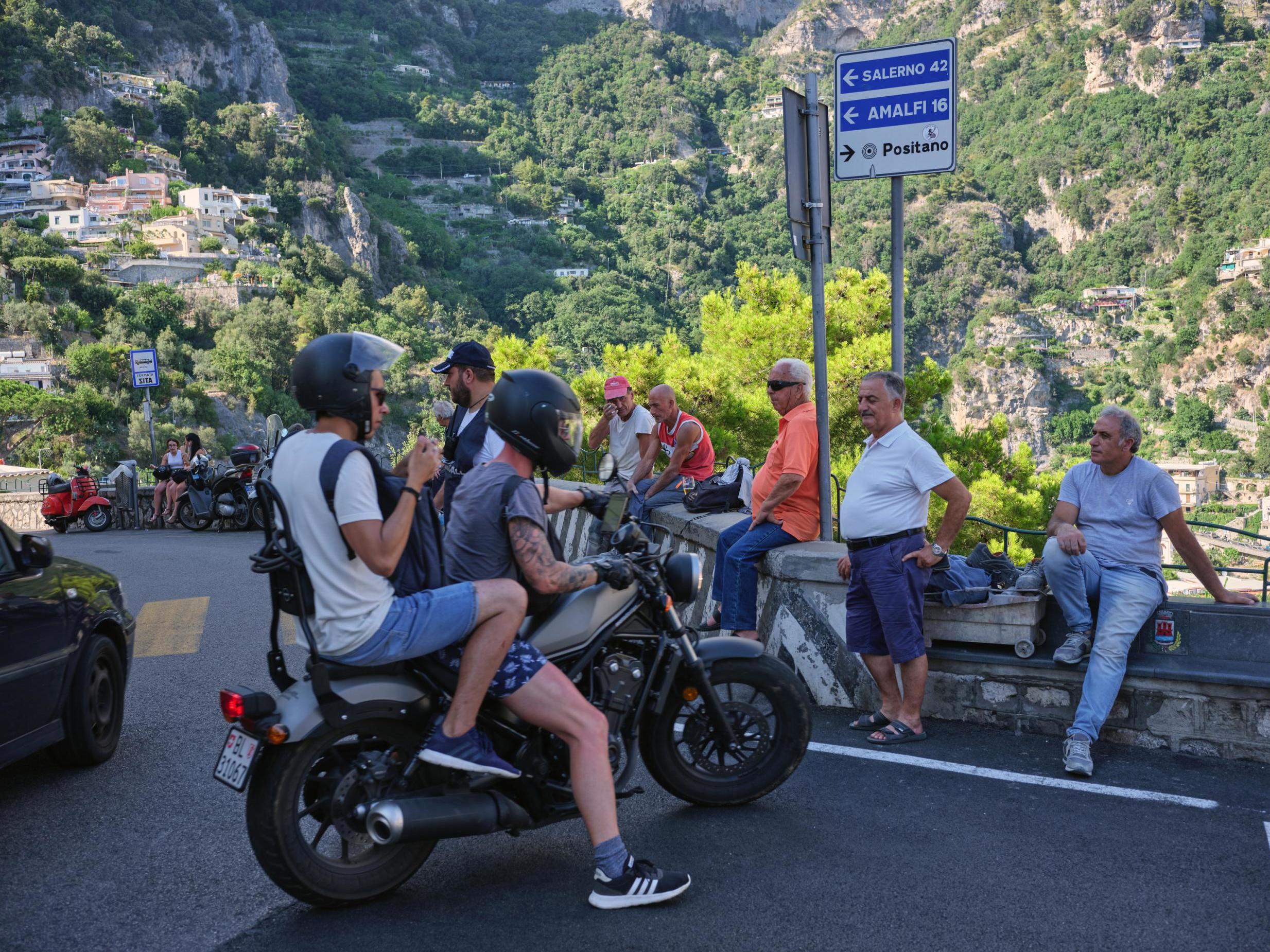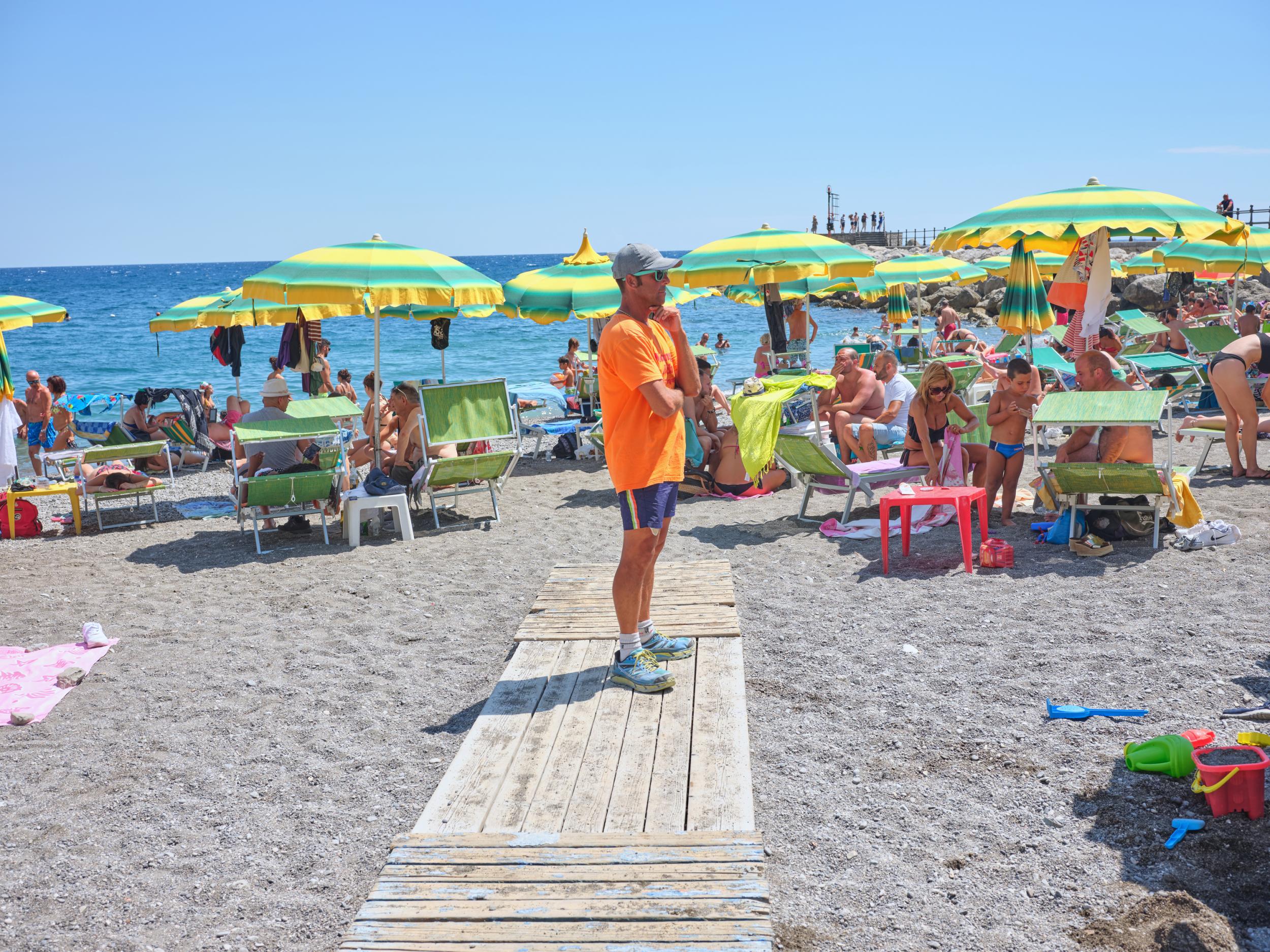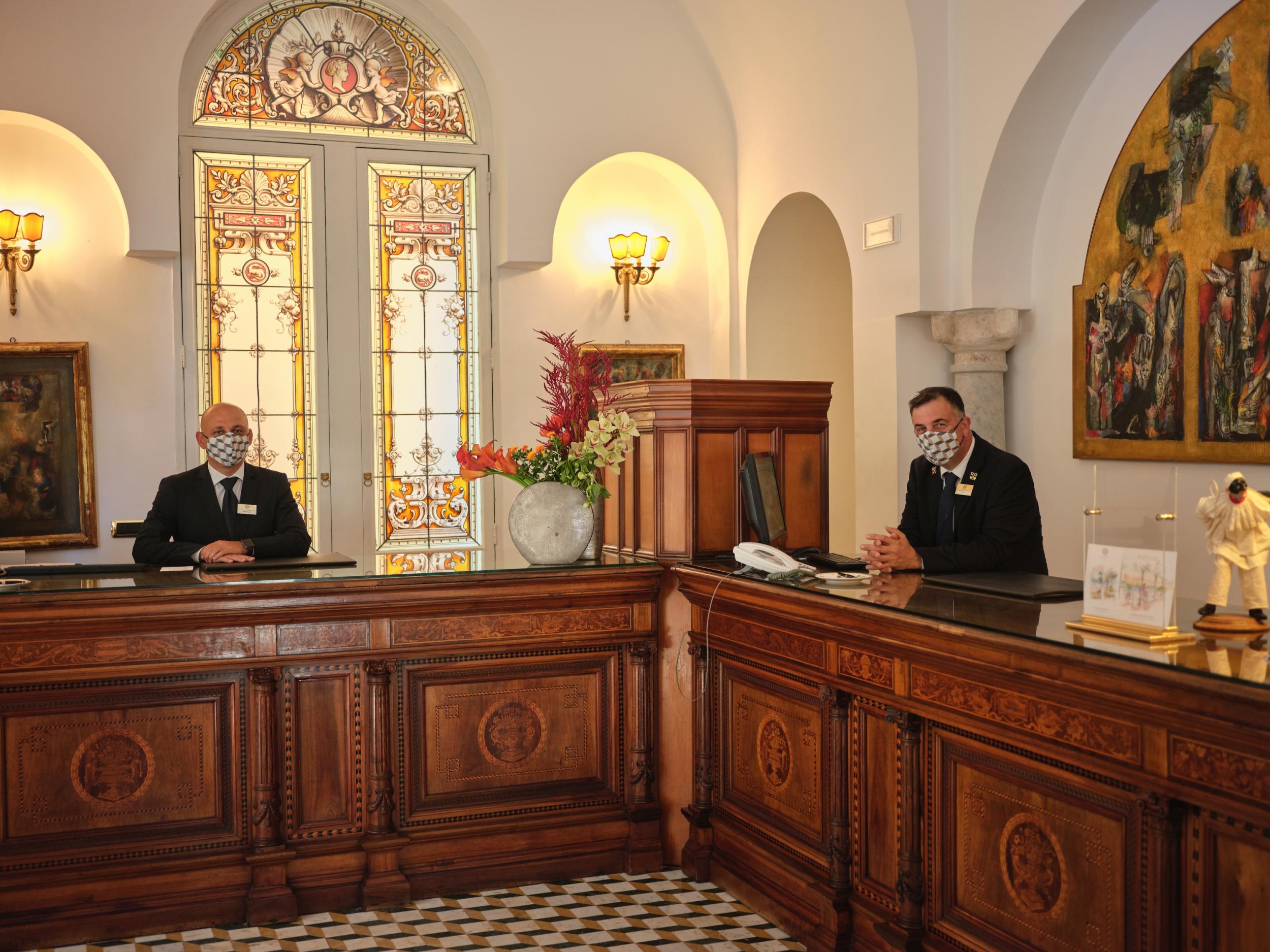Without tourism, the glamorous Amalfi coast is slipping into poverty
The Italian beauty spot, a magnet for wealthy tourists, has suffered an explosion in unemployment that has left many seasonal workers on the breadline, write Chico Harlan and Stefano Pitrelli

Your support helps us to tell the story
From reproductive rights to climate change to Big Tech, The Independent is on the ground when the story is developing. Whether it's investigating the financials of Elon Musk's pro-Trump PAC or producing our latest documentary, 'The A Word', which shines a light on the American women fighting for reproductive rights, we know how important it is to parse out the facts from the messaging.
At such a critical moment in US history, we need reporters on the ground. Your donation allows us to keep sending journalists to speak to both sides of the story.
The Independent is trusted by Americans across the entire political spectrum. And unlike many other quality news outlets, we choose not to lock Americans out of our reporting and analysis with paywalls. We believe quality journalism should be available to everyone, paid for by those who can afford it.
Your support makes all the difference.With American tourists banned from Italy, Amalfi coast workers are sliding into poverty
For 15 years, he’d worked in the kitchen of a luxury resort, overseeing the dishwashers, keeping ingredients stocked, making sure the guests in 1,200 euro-a-night rooms could order seafood spaghetti at any hour.
But this summer has brought only a trickle of guests. The hotel is operating with a skeleton staff. At his home five miles inland, Ninfo Falcone, 43, is contending with unemployment however he can: by dipping into his savings, building a small greenhouse, buying pigs and rabbits to raise, and occasionally taking a load of vegetables to sell in town.
“I went from five-star-hotel work to cultivating a patch of land,” Falcone says.
Once operating behind the scenes of near-paradise, cooking the meals and washing the sheets, the workers of the Amalfi coast now stand as a painful example of what can happen when borders are tightened, international travel collapses and tourists from hot spot countries are frozen out.
In one cliffside town after another, unemployment has exploded. Hotel and restaurant staffers who had catered to honeymooners, tycoons and Hollywood stars are sliding into poverty. Some are leaning on relatives for help or scrambling to find alternatives. Others, in deeper despair, have turned to charities and local town halls for food handouts.
“It’s been an economic tragedy,” says the Reverend Francesco Della Monica, whose chapter of the Catholic charity Caritas had never until this year received requests for help from residents of the coast.
For the vacationers still fortunate enough to come – mostly Europeans, and Italians on weekend trips – the lack of crowds has made the Amalfi coast even more alluring. But workers are bearing the cost of that change. Some of the reopened hotels and restaurants are offering staff positions only off the books or at reduced wages. Taxi drivers sit idle for much of the day and extend their shifts past midnight to earn just a portion of what they once did.
“Look at this guy,” one driver at a taxi stand says, pointing to a colleague with bags under his eyes. “He’s been awake for 23 hours.”
Even those with seemingly idyllic jobs, such as Vincenzo Parlatore, 39, an Amalfi beach attendant, have stories about how their lives have been ruptured. During a lunch break, Parlatore said he’d found his job only weeks ago, a last-ditch option after months of unemployment. He had “practically zero” money left, he says. Since the winter, three of his four children had celebrated birthdays; none had received gifts.
Among 30 restaurants and hotels, Nicola Vollaro received an offer at only one, where the monthly pay was 700 Euros
“And now my wife’s birthday is coming up in two days,” he says quietly.
He spent last summer guiding wealthy tourists on 1,800 euro boat tours, and he started this year with a plan to launch a similar tour business of his own. Just before the pandemic began, he bought a boat, an investment that became almost immediately useless.
He takes out his phone, showing text messages he’d exchanged with creditors who wanted a slice of his first paycheck: 600 euros for boat insurance, 400 euros to a shipyard.
“I’m not sleeping well,” Parlatore says before returning to duty at the beach. There, striped umbrellas stretch out in socially distanced rows. Vacationers skip into the water. “I’m jealous of the chance to be carefree,” he says.
There is not yet any sense of when tourism or the region’s workers might recover. That will depend to a large extent on how quickly the United States can bring the virus under control and persuade Europe to let Americans visit once again.

In some tourist-dependent parts of Italy, domestic travellers have made up for some of the losses. But the Amalfi coast, which grew over the decades into a vacation empire, depends on people coming from far away – people splurging on once-in-a-lifetime trips, or those with the money to come every summer. In a normal year, foreigners outnumber Italians almost six to one.
Americans are by far the most important nationality for the area, according to regional government data, accounting for 25 per cent of the total visitors to the province of Salerno, home to the Amalfi coast. More than 40 per cent of the people who last year checked into five-star Amalfi hotels were from the United States.
“It is a painful void,” says Corrado Matera, the regional government head for tourism.
In June, with Europeans again able to travel between countries on the continent, tourism in the province was nonetheless down 80 per cent. The Amalfi coast now fills up on weekends but has a sleepier, neighbourhood feel otherwise.
The Italian government has launched a programme of subsidies and benefits aimed at tourism workers. But most unemployed people on the Amalfi coast say those benefits are fractional at best, amounting to several hundred dollars per month. Stanislao Balzamo, a community organiser, says the process for determining who is eligible has been uneven and “chaotic.” Some have received nothing.
The Amalfi workforce is mostly local – people born and raised in the villages – and people tend to work seasonally, depending on large spring and summer paychecks while getting by on smaller unemployment benefits in the winter. But amid the pandemic, workers say the wages for spring and summer jobs – the few available – are falling. One room cleaner, who spoke on the condition of anonymity for fear of being fired, said she’d been at the same five-star resort for 30 years – what used to be salaried work. Now she is being called in on a day-by-day basis and is working less than half the normal time.

“I feel very let down,” the worker says. “The hotel never did this before. For me, it stinks.”
Nicola Vollaro, 64, had been a night porter at a five-star hotel, earning a monthly salary of nearly 1,500 euros and collecting tips from a clientele he said was almost entirely American. Now, he has gone months without a paycheck.
Shaving and putting on a crisp shirt, he has gone town to town and door to door with a CV in plastic sheeting. Among 30 restaurants and hotels, he received an offer at only one, where the monthly pay was 700 euros.
“It’s a crisis, and this is the best I can offer,” Vollaro remembered the restaurant owner saying
One afternoon, he buys a two euro bus ticket to Positano, known among workers as the Amalfi coast town with the wealthiest tourists and best wages. He’s heard from a friend that a small company that delivers supplies to hotels and restaurants might be hiring.
I went from five-star-hotel work to cultivating a patch of land
“This is the last step before desperation,” Vollaro says.
A ride that can take hours in normal times takes 30 minutes. Out the window, he can see all the reasons that people visit: the alluring beaches at the bottom of rickety stairs, tiny plots of farmland with plump lemons, luxury resorts that seem to be nailed into the sheer rock face.
Vollaro gets off at his bus stop, holding a slip of paper with the company’s address. The search for it takes him higher and higher, up one flight of steps and then another, until he is far from the tourist zone. Above, clouds cup the mountaintops. Below, the few boats in the bay are only specks.
He comes to a winding road and at last found the company. The owner is out front. Some workers are loading crates of bottled water onto a flatbed truck.
Vollaro tells the owner he is looking for work. Their conversation is short. “They’re looking for somebody younger,” Vollaro says a moment later, walking away. Even if he could do the job, it pays barely anything – 700 euros per month.
“I’m too young to retire and I’m too old to work,” Vollaro says as he heads back down the hill.
Zigzagging along Positano’s switchback roads, passing one shuttered hotel and then another, he complained that the town had become a “tomb”. He chats with a restaurant owner who tells him she’s hired back only two of her 16 employees. He points out spots where he’s already knocked, looking for work, finding nothing.
“Enough with this place,” Vollaro says, and he thinks about whether the next step might be to search elsewhere, to move away from the coast, to give up on tourism, at least temporarily. “I’m done with this,” he says.
He calls the Amalfi coast a “fake cake” – towering, glorious, beautiful.
“But,” he says, “it won’t sustain you.”
© The Washington Post
Join our commenting forum
Join thought-provoking conversations, follow other Independent readers and see their replies
Comments